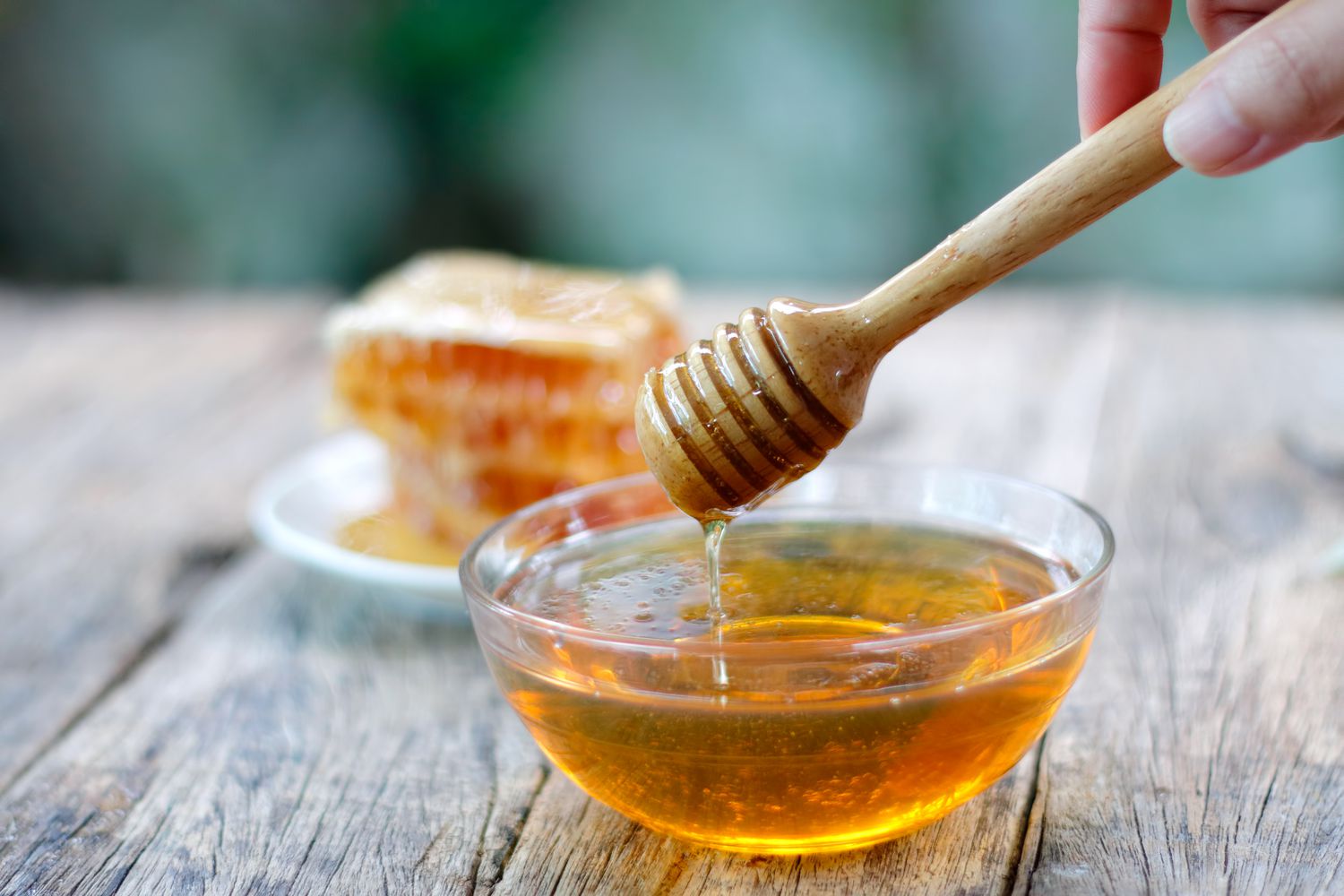Honey is a pantry staple that can be found in most people’s homes. It’s a versatile ingredient that you can use to make everything from drinks and baked goods to savory dishes.
But a little goes a long way, and one jar can last months if not years. Is that, well, OK? Can honey go bad? If so, when and how do you know if your honey is bad?
Here are all the details about the golden sweetener and whether it ever expires.
What Is Honey?
Honey is a thick, sweet liquid produced by bees from plant nectar. There are hundreds of different types of honey produced in the world, and each has its own distinct flavor profile. The color and flavor of the honey depend on which plant the nectar comes from.
In general, the darker the honey the stronger the flavor. The most common variety produced in the U.S. is clover honey.
Does Honey Go Bad?
Not really. Honey is made up of about 80% sugar and 18% water. That small amount of water makes it inhospitable to bacteria and mold. Honey is also very thick, which stops oxygen from easily penetrating it (bacteria need oxygen to thrive).
Finally, the presence of gluconic acid gives honey a slightly acidic pH level—another barrier to microbial growth.
In general, honey doesn’t spoil. However, it can go bad if it’s contaminated or incorrectly stored. If your honey has visible mold, or if it smells fermented or “off,” then it’s time to toss it.
What If Honey Is Crystallized?
It’s natural for honey to crystallize over time. This doesn’t mean that the honey has gone bad, only that some of the sugar has separated from the water and transformed into crystals.
Crystallized honey can be eaten, but if you prefer it in its liquid state, you can gently heat the honey in a water bath over low heat. Make sure the water and honey don’t come to a boil, as high temperatures will kill the good yeast and enzymes in the honey.
Then Why Does Honey Have an Expiration Date?
In general, expiration dates and sell-by dates are guidelines for inventory management. The dates help stores keep the freshest products on their shelves.
Honey that’s nearing its expiration date merely indicates that it’s been sitting in the shop for a while. As long as the seal hasn’t been tampered with, the honey should be good for many more years to come.
With that said, the quality of the honey could change over time. According to the USDA, while honey remains safe to eat after 12 months, the quality may not be as good.
What Special Properties Does Honey Have?
Honey is mostly made up of sugar and is not a nutrient-dense food. However, honey naturally produces hydrogen peroxide, the same antiseptic we use to treat minor scrapes, cuts and burns.
In the past, honey was used as medicine by doctors to treat the ill and wounded. Today, medical-grade honey is used by some physicians to treat certain drug-resistant infections.
Many people assume that honey is good for a cough based purely on anecdotal evidence, but studies have found that honey can be an effective cough suppressant for those more than 1 year old (honey shouldn’t be given to children under age 1). There’s a reason it’s common to drink tea and honey when you’re feeling under the weather. (Learn more about the health benefits of honey.)
How to Store Honey
Here are a few tips for storing honey:
Store Honey in an Airtight Container
It’s important to tightly close the lid of your honey container to prevent contamination from environmental microbes. This also prevents your honey from absorbing additional moisture. More moisture means more water, which makes it easier for bacterial growth to happen.
Keep in a Dry and Cool Area
Honey can be stored in the refrigerator, but this will cause it to crystallize faster. Crystallization isn’t a bad thing, but most of us find it easier to use honey when it’s liquid. To prevent this from happening, it’s best to keep your honey in a cool spot like a cupboard or pantry.
Avoid Cross-Contamination and Water
Never use dirty or wet utensils to spoon honey out of the jar. This can invite unwanted bacteria and mold to grow.
The Bottom Line
Honey won’t go bad as long as it’s stored properly and protected from external contamination. Crystallized honey is not an indicator of spoilage but rather a sign of aging. To prevent honey from solidifying, keep your honey in an airtight container and place it in a cool, dark spot.
Now that you know about the shelf life of honey, put the singular ingredient to good use, like in this energizing snack: Almond-Honey Power Bar. Or try it in a variety of quick, easy and healthy dinners like Honey Walnut Shrimp, Skillet Honey-Garlic Chicken Thighs or delicious Honey-Garlic Salmon
















